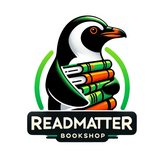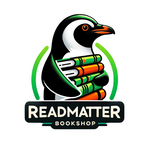"For Your Own Good" by Samantha Downing - A Psychological Perspective
This insightful review was submitted by @narrativesandneurons, a registered psychologist with a keen eye for the psychological tapestries woven into literature. In private practice, he delves into the minds of his characters as deeply as he does his clients, sharing profound psychological observations through his book analyses. Follow for a journey into the psyche behind the stories.
Samantha Downing's "For Your Own Good" is more than just a psychological thriller; it's an exploration of the darker aspects of human nature through the lens of psychological theories. As a 32-year-old with a degree in psychology, I found this novel particularly intriguing, as it resonates with the psychological premise of the 'shadow self,' a concept introduced by Carl Jung.
The shadow self, in Jungian psychology, represents the part of our personality that we often hide or deny, usually comprising repressed ideas, weaknesses, desires, instincts, and shortcomings. Downing's protagonist, Teddy Crutcher, a teacher at Belmont Academy, embodies this perfectly. His actions, masked under the guise of doing good, reflect a deeper, more sinister part of his psyche. This novel illustrates the quote, “The problem with good intentions, is that they often have unintended consequences,” highlighting how the shadow self can influence our actions in unexpected ways.
Throughout the narrative, Downing masterfully demonstrates the complex interplay between Teddy's outwardly benevolent demeanor and his inner, darker motivations. This duality echoes the Jungian concept that there is a part of ourselves lurking in the unconscious, capable of influencing our actions in ways we might not consciously understand. For readers with a background in psychology, Teddy's character becomes a case study in understanding the shadow self and its manifestations.
Moreover, the setting of Belmont Academy acts as a catalyst, bringing out the shadow in various characters. Downing uses this environment to explore how stress, ambition, and societal pressures can bring underlying traits to the surface. The book stirs up introspection, pushing the reader to examine their own shadow aspects. This introspective journey is accentuated by Downing's crisp and engaging prose, making the psychological underpinnings both accessible and gripping.
"For Your Own Good" also taps into the psychology of manipulation and control, illustrating how these dynamics often stem from unacknowledged parts of our psyche. The interactions between Teddy and his students are laced with these psychological games, making the novel a rich study of human behavior and the darker side of human intentions.
As someone sensitive to the emotional undercurrents in literature, I found "For Your Own Good" a compelling narrative that doesn't just entertain but also educates. It challenges readers to reflect on their own shadow selves, consider the nature of their intentions, and recognize the complex tapestry of the human psyche.
In conclusion, Downing's novel is a brilliant amalgamation of psychological theory and thrilling narrative. It not only provides a riveting story but also serves as a reminder of the intricacies of the human mind and the importance of acknowledging and understanding our deeper selves. The psychological depth added to the suspense makes "For Your Own Good" a must-read for those fascinated by the workings of the human mind.










